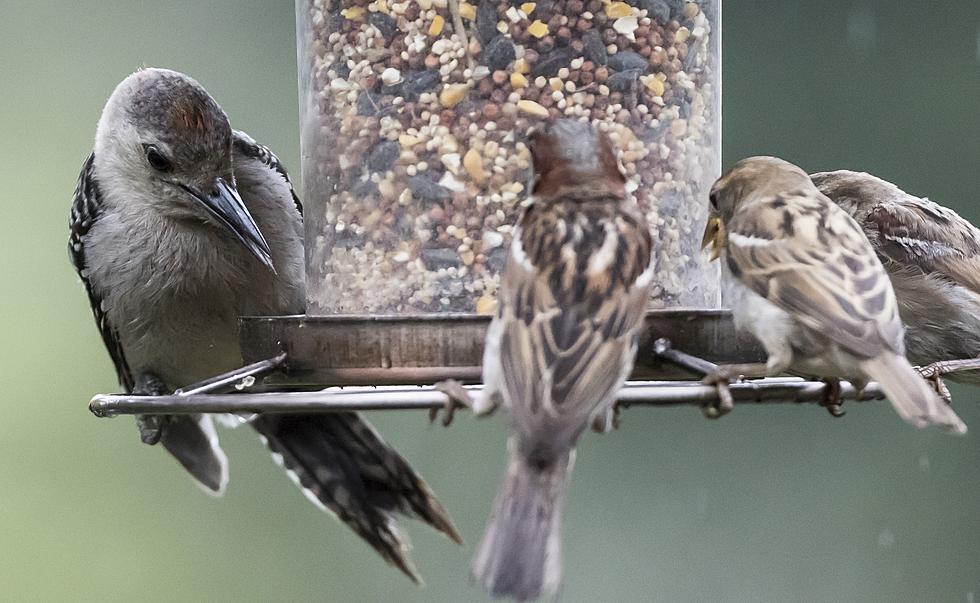
Your backyard feeder could be killing birds: Here’s what to do
Having a dirty bird feeder can potentially be deadly to birds.
Salmonella and avian conjunctivitis are the two most common diseases seen in backyard birds, both of which could be fatal, said Brian Moscatello, sales manager for NJ Audubon’s Cape May Bird Observatory.
When there's a concentration of birds at a feeder, he said it's a good idea to periodically — weekly at best — clean the feeders and disinfect them.
Salmonella comes in with the birds usually on their feet or feces. But when birds are concentrated at a feeder and there are multiple species and multiple individuals of a species repeatedly coming to the feeder, there's a good chance they'll bring in that bacteria and concentrate them. That increases the rate of transmission to other birds.
The salmonella is not coming in new on the feed or the feeder itself. That's why he said it's important to clean and disinfect the feeder weekly and replace it with dry food.
In just a couple of weeks, people will be putting up hummingbird feeders, which includes sugar water. These feeders also need to be cleaned on a weekly basis. He said this feeder attracts hummingbirds mostly but butterflies and moths have been known to have a sweet tooth.
When the bird seed gets wet after heavy rain, dump the food from the feeder and clean it.
"What's normally suggested is a 10% bleach solution or just an ounce of bleach and a gallon of water in a bucket. Scrub the feeders clean. Let them dry in the air and put them back up again with clean food," said Moscatello.
Bird houses can be cleaned between seasons.
While he knows there have been cases of birds dying of salmonella in New Jersey, he does not have an exact number as to how many. It's hard to quantify because the birds are widespread and migrate. Many times birds infected with salmonella fly away and go into hiding when they get sick.
If a bird is listless, drowsy or has trouble flying, Moscatello said those could be a few signs that it is sick. He said it's easier to figure out if a backyard bird at a feeder has avian conjunctivitis. A bird's eyes will be partially or completely closed. Avian conjunctivitis is not fatal to birds but can make them fall prey to predators.
If you have sick birds, contacting the New Jersey Division of Fish and Wildlife to find a licensed rehabilitator.
THE DEFINITIVE LIST OF THE SWEETEST ICE CREAM PARLORS IN MONMOUTH AND OCEAN COUNTIES
More From WPDH-WPDA







